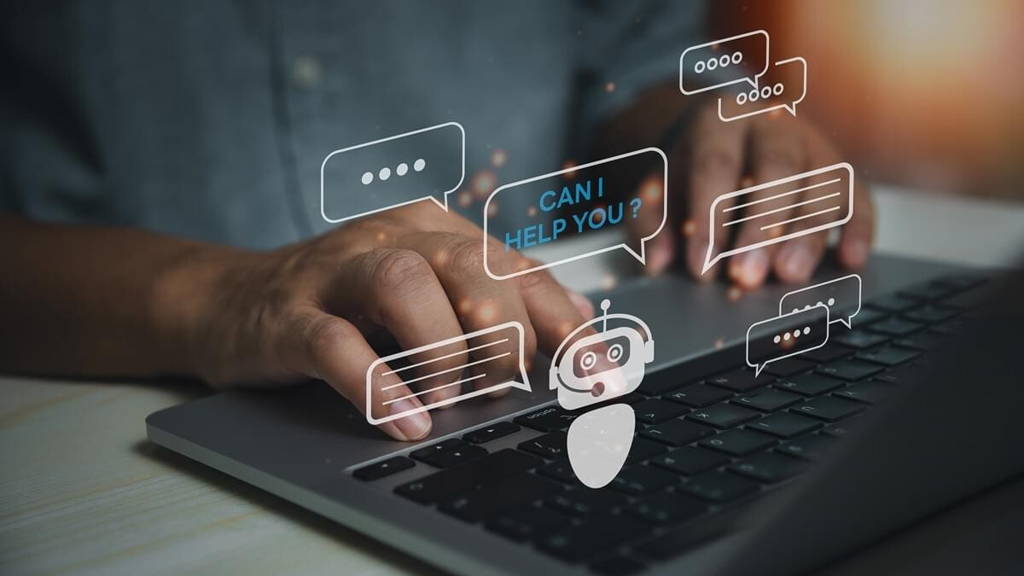AI has gained unprecedented momentum since ChatGPT and related generative artificial intelligence tools were released in the fall of 2022.
In 2023, the international press reported that ChatGPT accurately diagnoses rare diseases, passes medical exams, and answers patients' questions more empathetically than doctors. Chatbots based on large language models – such as Dave, a mentor for cancer patients – have hit the market. The first health IT vendors have started integrating AI into EHR systems, making it easier for doctors to interact with software. Oracle, Google, Epic, and Microsoft announced they would revolutionize how doctors collect and use data by introducing generative AI into their workflows.
It is hopefully the beginning of the end of manually typing data into the EHR from a keyboard and clicking through tabs to find relevant clinical information. The first hospitals have hired prompt engineers capable of communicating with AI and are introducing generative AI into clinicians' workflow to help them review research findings and create simple letters and recommendations for patients.
Digital advisors – for everything and on-demand
Generative artificial intelligence allows one to create texts or images based on instructions given by the user. Using ChatGPT, you can chat with AI like with a human, asking questions and requesting tasks like creating knowledge summaries, writing articles, etc. Responses are given in natural language so close to that used by humans that it is becoming increasingly difficult to distinguish which content was created by a human and which by AI.
A frontrunner in generative AI is OpenAI, the developer of ChatGPT. At the conference for developers held in November 2023 (OpenAI DevDay), the company announced several innovations that will determine the course of AI development.
AI-driven personal assistants will become widespread as apps for smartphones
According to Sam Altman, head of OpenAI, ChatGPT is safer, smarter, and more up-to-date – its knowledge now covers data until April 2023 (previously - only until November 2021). However, the most important announcement was opening of a GPT Store for generative AI applications, comparable to the Apple Store or Google Store for apps. GPT Store will include AI-based applications developed by third-party companies – similar to mobile smartphone applications. In practice, it means the emergence of personalized chatbots for various purposes: entertainment, writing emails, healthy eating, self-optimized lifestyle, disease prevention, etc. Everyone will be able to download an AI-driven assistant according to their needs, which will advise, suggest, and even do the work for us.
Will conversation with AI displace chat?
Generative AI will become interactive, remember previous conversations, know the user's preferences, collect data from the real world, and learn from conversations – in order to interact with the user in a personalized way.
In healthcare, conversational AI will be applied in three ways:
- Personalized chatbots for patients. AI advisors can answer a patient's questions, explain lab results, give suggestions on how to adjust a lifestyle to a specific disease, or better care of their health. Nowadays, every new conversation with ChatGPT starts from scratch – the AI doesn't remember what was discussed the day before. Conversational AI for healthcare applications will not have this limitation. The chatbot will be able to reach back in memory.
- Chatbots assisting doctors. Doctors will be able to inquire about new scientific research on the treatment of a specific disease, create quick summaries of data in electronic medical records, enter data into HER using new methods, and generate certain documents, e.g., visit summaries for patients, referrals, clinical letters, etc.
- Chatbots supporting patient flow in healthcare facilities. They will automate communication with the patients: make an appointment, send a reminder, call a chronic patient for an update on their health, find an available date for the next appointment, suggest immunizations, and take over some of the tasks manually done by registration desk staff.
New interactive AI tools will be nothing like voice assistants like Siri or Alexa. Their responses will be seamless, empathetic, and tailored to the context of the conversation and even the user's emotional state. With such superior language skills, they will be able to provide ongoing support for people struggling with loneliness or mental illness (as a supplement to therapy).
It's like switching from smartphone keyboards to touchscreens
The current development of AI is somewhat akin to 2008 and the launch of Apple's first iPhone. Since then, smartphones have taken hold of our hands for good. Those who have previously used analog keyboards in smartphones remember what a huge change it was.
The development of AI in 2023 and 2024 heralds another technological revolution – we will begin to talk to machines just as we speak to other human being.
Instead of mobile apps for, for example, improving sleep quality and healthy eating, helping manage diabetes – requiring manual handling – specialized chatbots will advise patients, answer questions, and monitor health. Dr. AI is getting ready to replace Dr Google.







